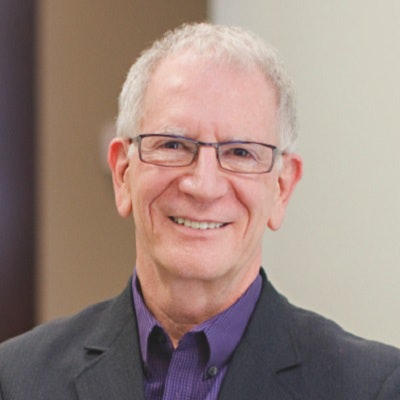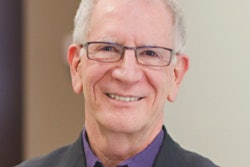
I have a pet peeve -- professionals using their credentials to oversell products. They first present great information, but then they embellish it and sell a truckload of questionable products.
I do understand that there are people who are sick and need help. I do believe that some of these people need a jumpstart to help their bodies get on the right track. Healthcare professionals dealing with these medical situations must initiate active treatment for acute problems.
 Alvin Danenberg, DDS.
Alvin Danenberg, DDS.Yet, the facts are that when people eat unhealthy foods and lead unhealthy lifestyles, their bodies respond in unhealthy ways. The first treatment after acute care should be to initiate healthy life changes. Most people who are suffering could be helped tremendously by simply giving their bodies what they need and, most important, by avoiding what their bodies do not need. That goes not only for overall health, but also for oral health.
This brings me to the topic of detoxification. A "National Health Statistics Report" (July 30, 2009) from the U.S. Centers for Disease Control and Prevention showed that the money spent on alternative medicine in 2007 was nearly $34 billion annually. I suspect the money spent just on detox products today has created a multimillion dollar annual industry -- selling whatever miracle concoction that is popular at the moment to make our bodies do what they were designed to do in a natural state.
What is detoxification?
The word detoxification has two meanings in healthcare:
“The first treatment after acute care should be to initiate healthy life changes.”
- One is the medical treatment for people who have drug addictions. This medical practice of detoxification allows the body to rid itself of a drug while managing the symptoms of withdrawal. It is designed to prevent potentially life-threatening complications that might appear if the patient were left untreated with their chemical addiction.
- The other is the process that has become popular with entrepreneurs who promote products to help your body rid itself of harmful toxins. The question is: Are these products necessary above and beyond what your body is capable of doing through its normal process of detoxification?
I tell my patients that these chemicals that supposedly remove toxins could present a toxic burden to the body if our livers and kidneys could not remove them or if we were exposed to so many that our bodies could not deal with the total toxic load.
How do you detox?
The main detoxification organ in the body is the liver. Everything we breathe, digest, and absorb into the bloodstream passes through the liver. Many commercial detoxification products make the claim that they cleanse the liver, but the liver does not store toxins. It turns potentially harmful toxic material into water-soluble chemicals that can be removed by your body naturally through sweating, exhaling, urinating, and defecating.
It is essential for the body to have adequate nutrients so that liver detoxification can work properly. When I talk with my patients about foods that support healthy detoxification, I usually cite deep-colored fruits and vegetables, avocados, wild-caught fatty fish such as salmon and sardines, and vegetables such as Brussels sprouts, broccoli, and cabbage.
I also talk about intermittent fasting, which for me means about 17 hours between meals (this includes the overnight period).
My bottom line is that eating nutrient-rich foods and practicing intermittent fasting are effective methods for detoxification, according to published studies. If your patients tout some new detox diet, determine why your patient thinks he or she needs a detoxifying diet. Maybe your patients only need to change their lifestyle and eating habits.
A version of this column first ran on Dr. Danenberg's blog. DrBicuspid.com appreciates the opportunity to reprint it. His book Crazy-Good Living from Elektra Press is available here.
Alvin Danenberg, DDS, practices at the Bluffton Center for Dentistry in Bluffton, SC. He is also on the faculty of the College of Integrative Medicine and created its integrative periodontal teaching module. He also spent two years as chief of periodontics at Charleston Air Force Base earlier in his career. His website is drdanenberg.com.
The comments and observations expressed herein do not necessarily reflect the opinions of DrBicuspid.com, nor should they be construed as an endorsement or admonishment of any particular idea, vendor, or organization.


















